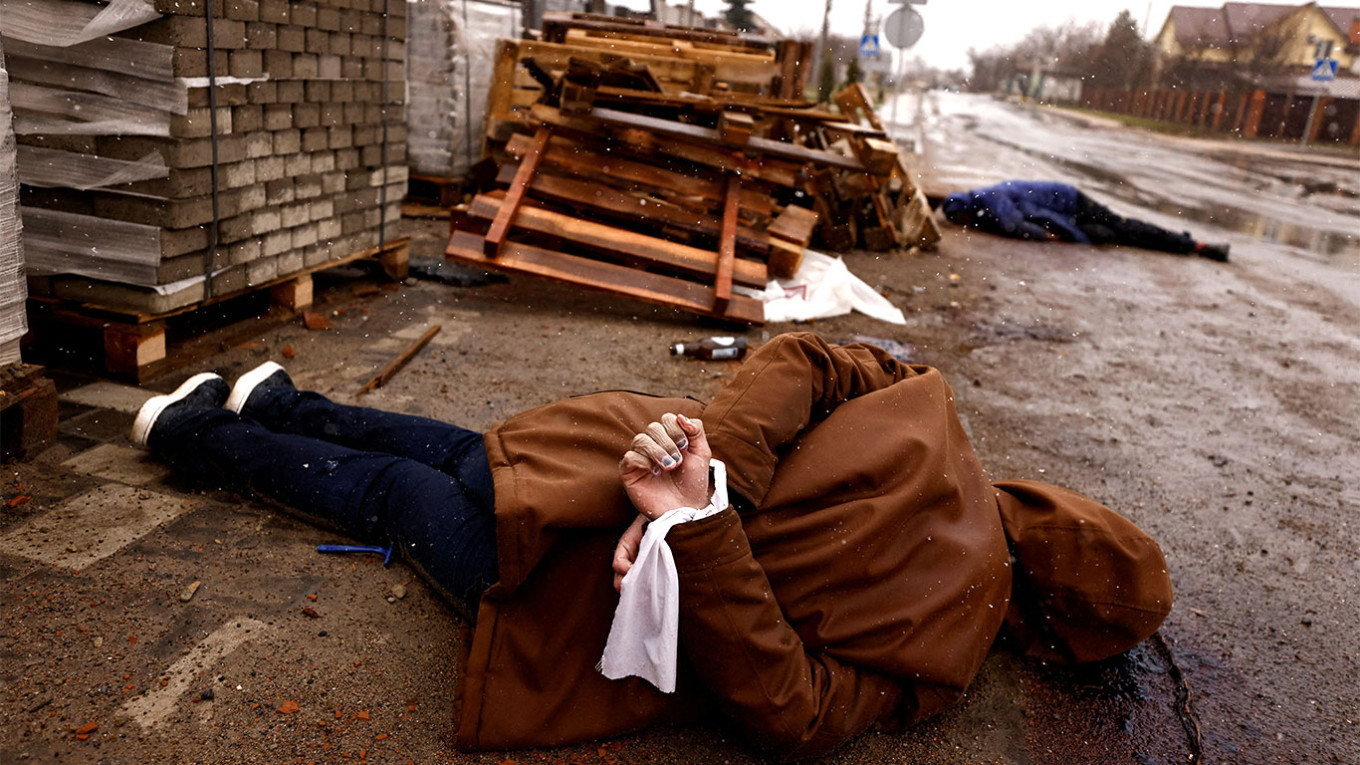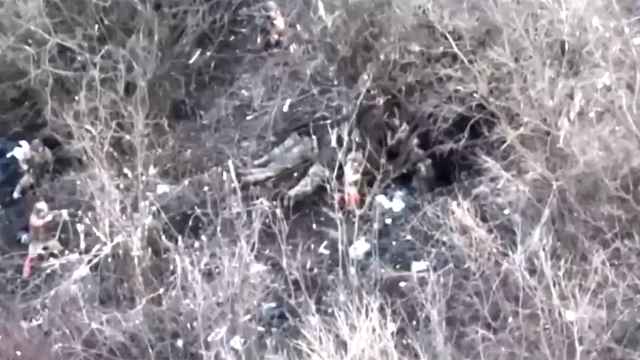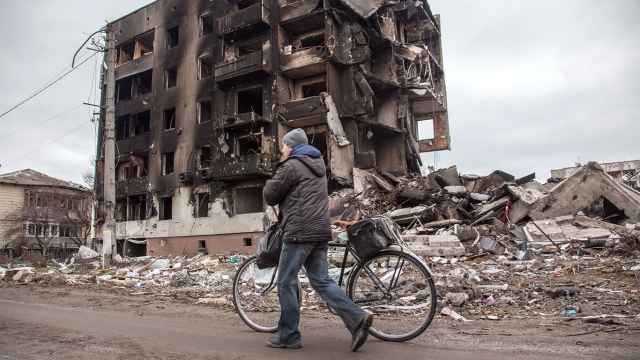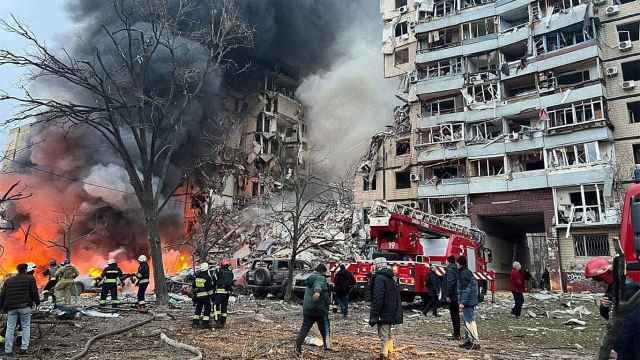Ukrainian President Volodymyr Zelensky said Friday that Ukraine would "never forgive" Moscow for its occupation of Bucha, a year after the town became a symbol of alleged Russian war crimes.
Russian forces pulled back from the commuter town northwest of Kyiv on March 31, 2022, just over one month after President Vladimir Putin ordered his troops to invade Ukraine.
AFP journalists on April 2 last year discovered the bodies of at least 20 people in civilian clothing, some with their hands tied behind their backs, lying in a street of the town.
Zelensky said Bucha had become "a symbol of the atrocities" committed by Russian forces, who have been linked to the extra-judicial killings of unarmed civilians in Bucha.
"We will never forgive. We will punish every perpetrator," Zelensky said in a statement on Telegram.
During a visit to Bucha days the Russian troops' withdrawal, Zelensky described the killings as "genocide."
Ukraine and its Western allies accused Russian troops of war crimes after the discoveries, pointing to an abundance of footage and witness accounts.
Prosecutors in Kyiv say Russian forces killed some 1,400 civilians around Bucha and that they have identified dozens of the Russian soldiers responsible.
But Moscow denies the accusations, claiming the atrocities in Bucha were staged.
Many foreign leaders and officials who have visited Ukraine since the war started have made a stop in Bucha.
Japanese Prime Minister Fumio Kishida said he had a "strong sentiment of indignation" in Bucha last week.
After Russia withdrew from near Kyiv, fighting shifted to the south and east of Ukraine, with the embattled city of Bakhmut now the site of the longest and bloodiest battle since the invasion began.
But a year after it was retaken by Kyiv's forces, Bucha has not forgotten its victims.
The community of the suburb is rebuilding, and locals told AFP "the pain subsides" and that they must "continue to live."
AFP on Thursday saw dozens of construction workers weaving between diggers and trucks, as they worked to rebuild homes and roads in the town, which had a pre-war population of some 37,000 people.
Archpriest Andriy, who runs the local parish, said it was "important" not to forget those who were "not with us today".
"But it is also important for us not to live in the past but in the future," he added.
In the weeks following Russia's withdrawal from other towns near Kyiv, hundreds more bodies were found in homes, basements and shallow graves across the north.
Ukraine wants to establish a special tribunal to prosecute Russia's leaders but there are complex legal disputes over how it could work.
The International Criminal Court (ICC) earlier this month issued an arrest warrant for Putin over the unlawful deportation of children from Ukraine.
Chief ICC Prosecutor Karim Khan has described Ukraine as a "crime scene."
Russia has repeatedly denied any abuses by its forces, and Foreign Ministry spokesperson Maria Zakharova this week described scenes in Bucha as a "crude and cynical provocation" by Kyiv.
A Message from The Moscow Times:
Dear readers,
We are facing unprecedented challenges. Russia's Prosecutor General's Office has designated The Moscow Times as an "undesirable" organization, criminalizing our work and putting our staff at risk of prosecution. This follows our earlier unjust labeling as a "foreign agent."
These actions are direct attempts to silence independent journalism in Russia. The authorities claim our work "discredits the decisions of the Russian leadership." We see things differently: we strive to provide accurate, unbiased reporting on Russia.
We, the journalists of The Moscow Times, refuse to be silenced. But to continue our work, we need your help.
Your support, no matter how small, makes a world of difference. If you can, please support us monthly starting from just $2. It's quick to set up, and every contribution makes a significant impact.
By supporting The Moscow Times, you're defending open, independent journalism in the face of repression. Thank you for standing with us.
Remind me later.






